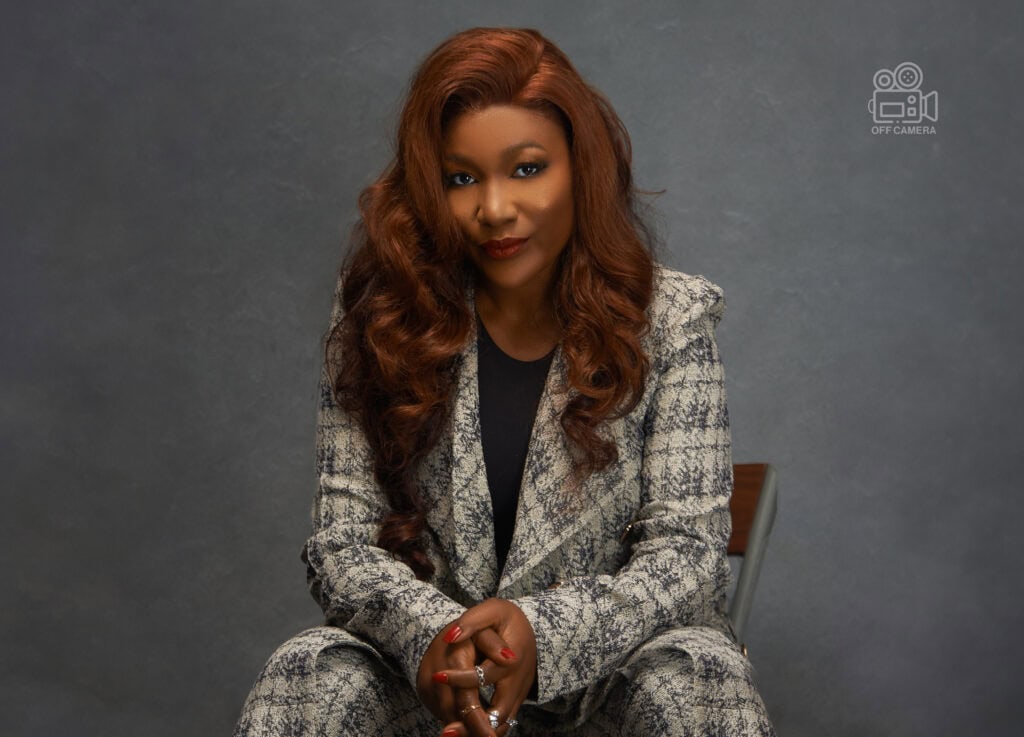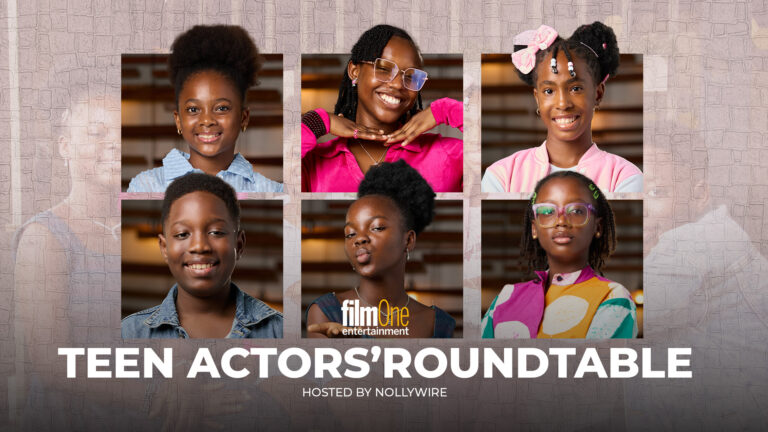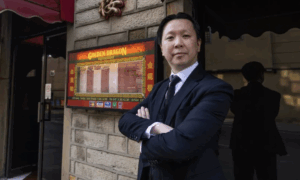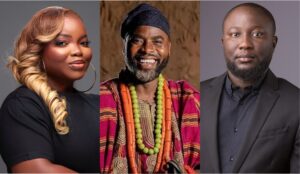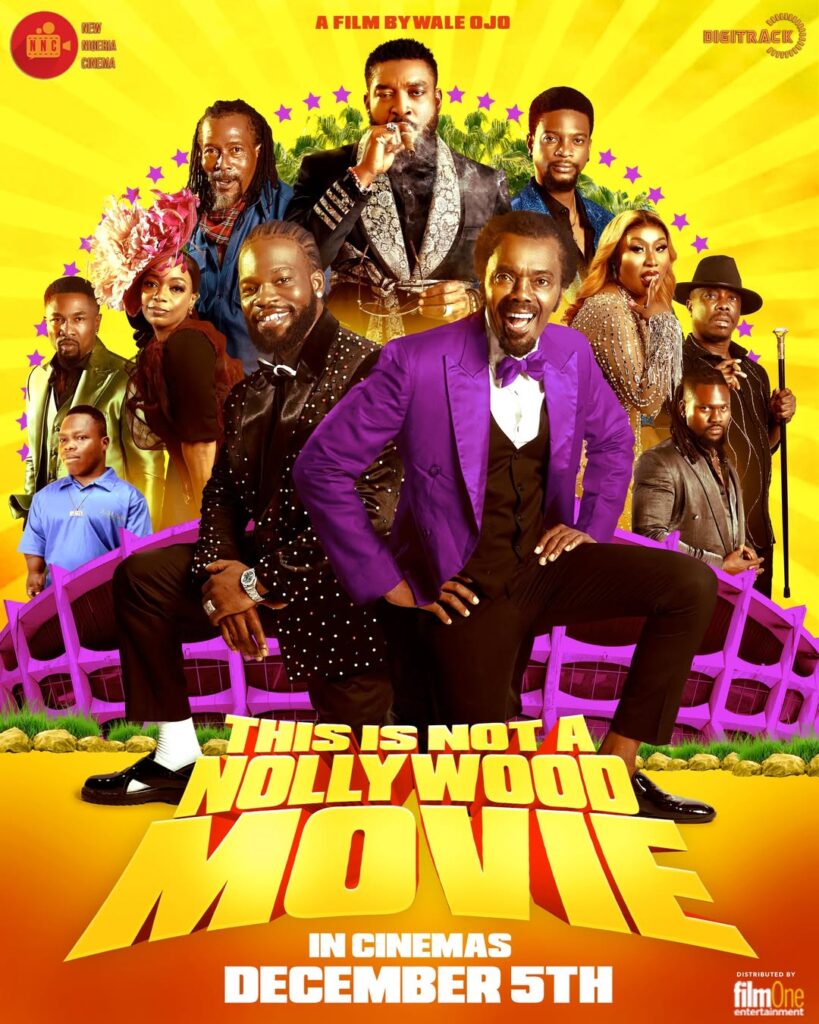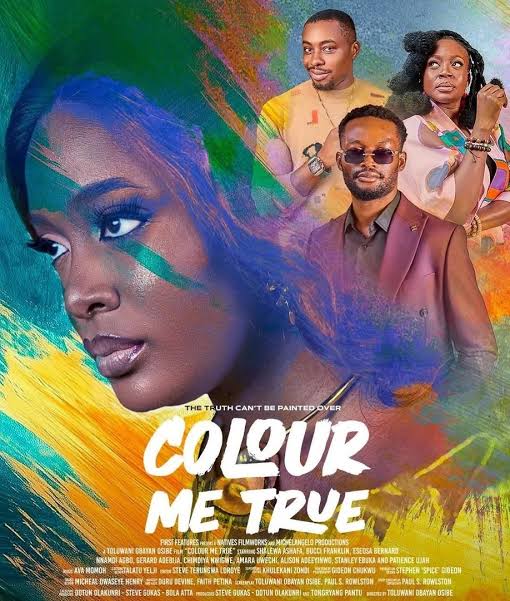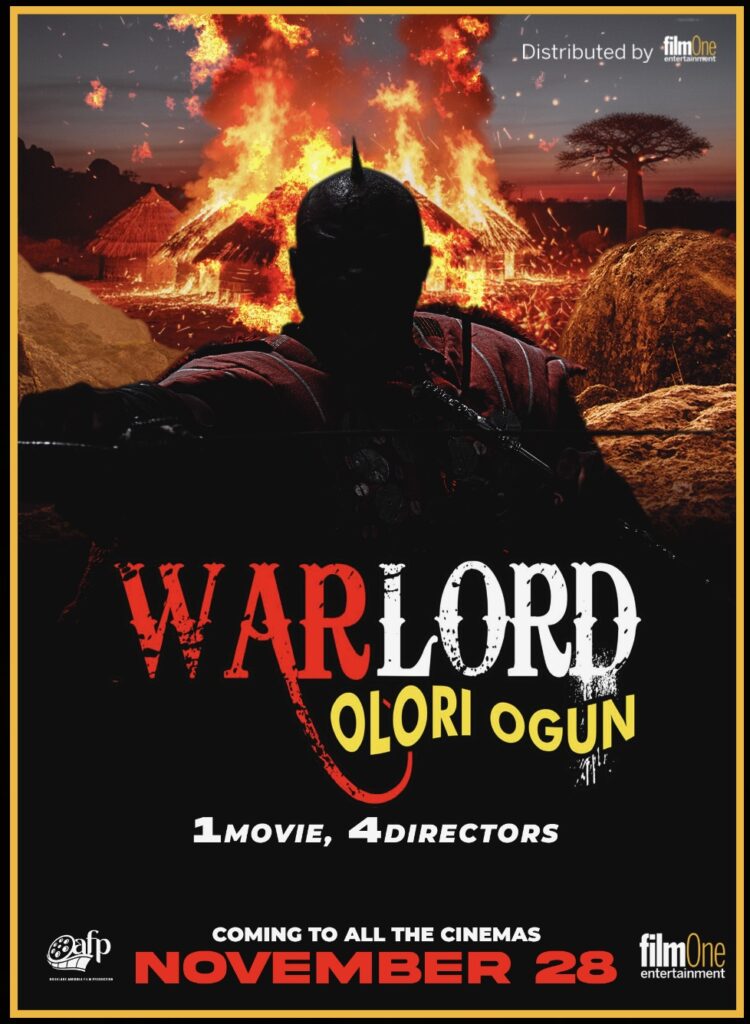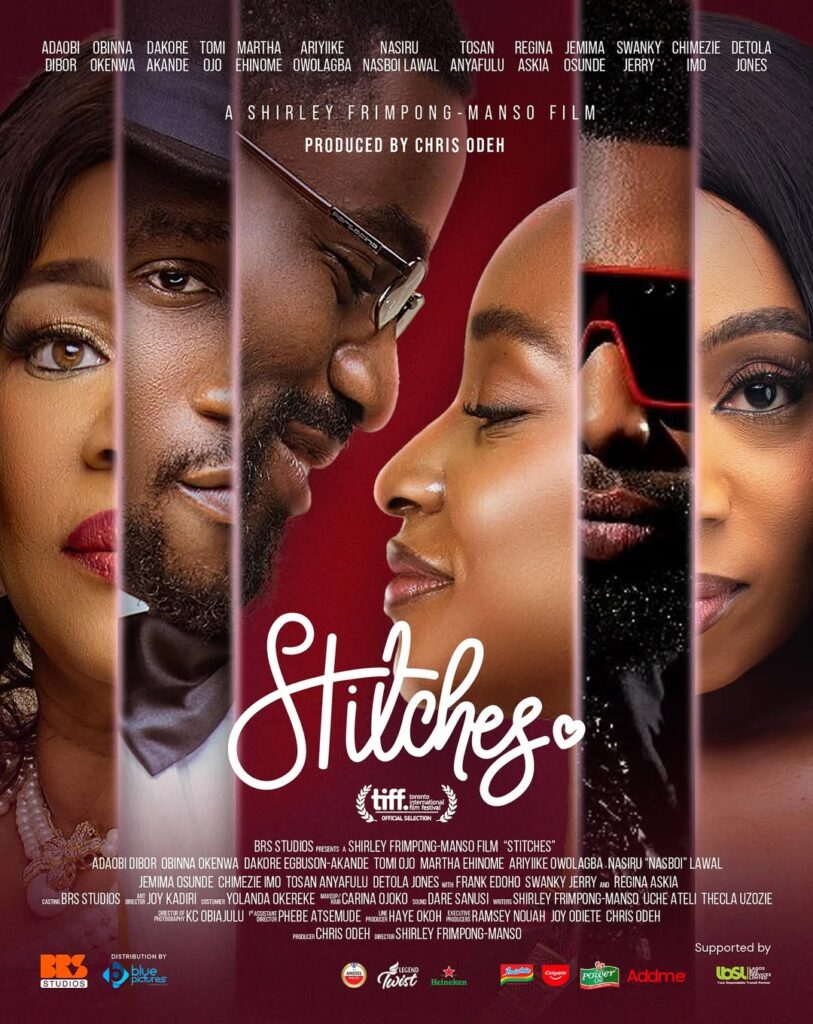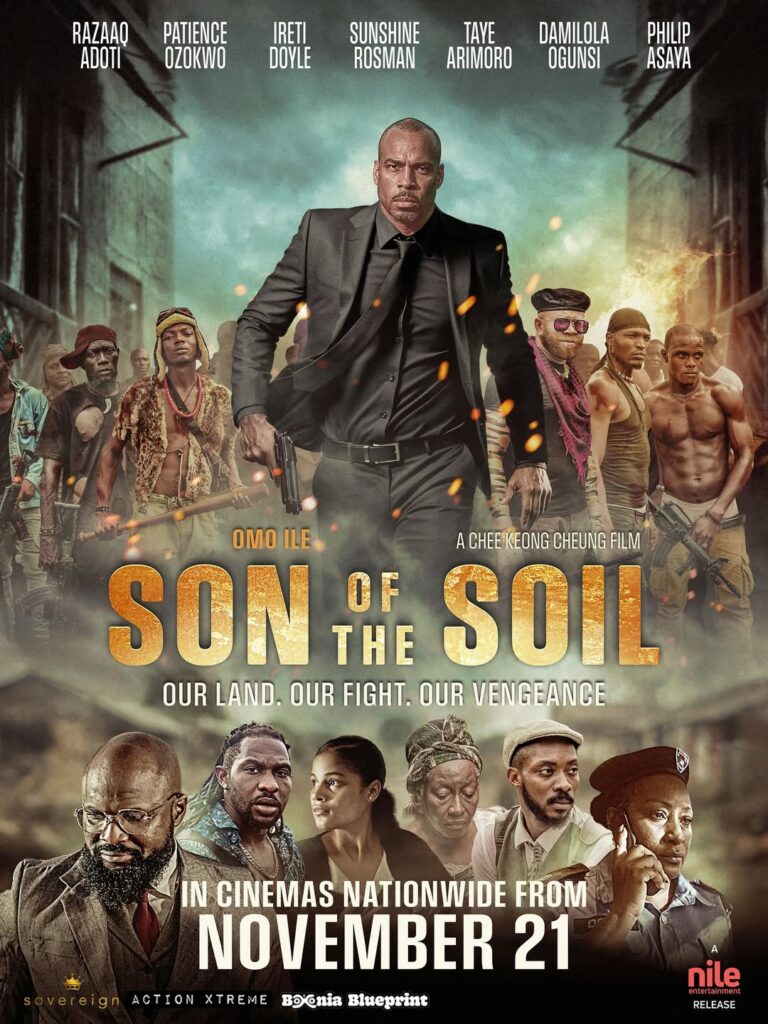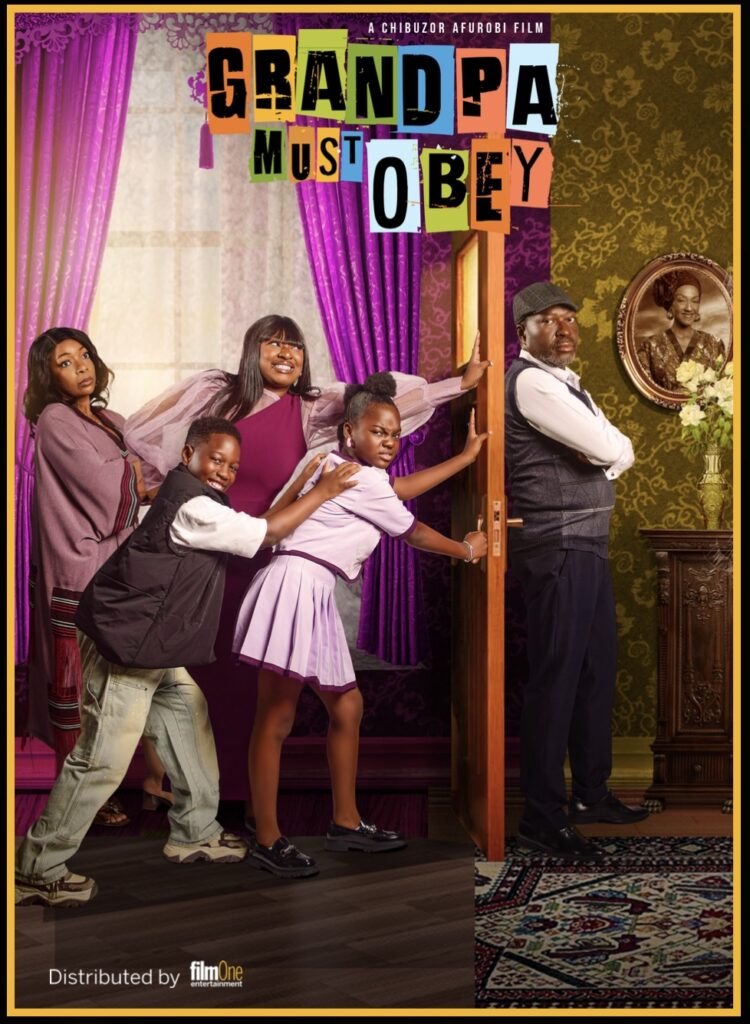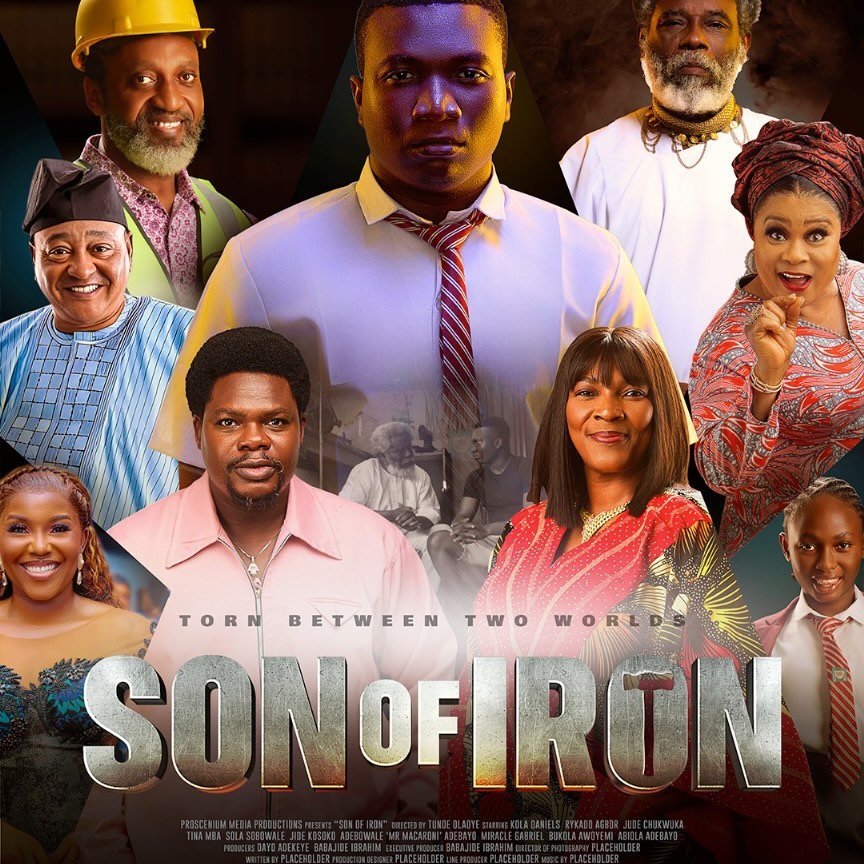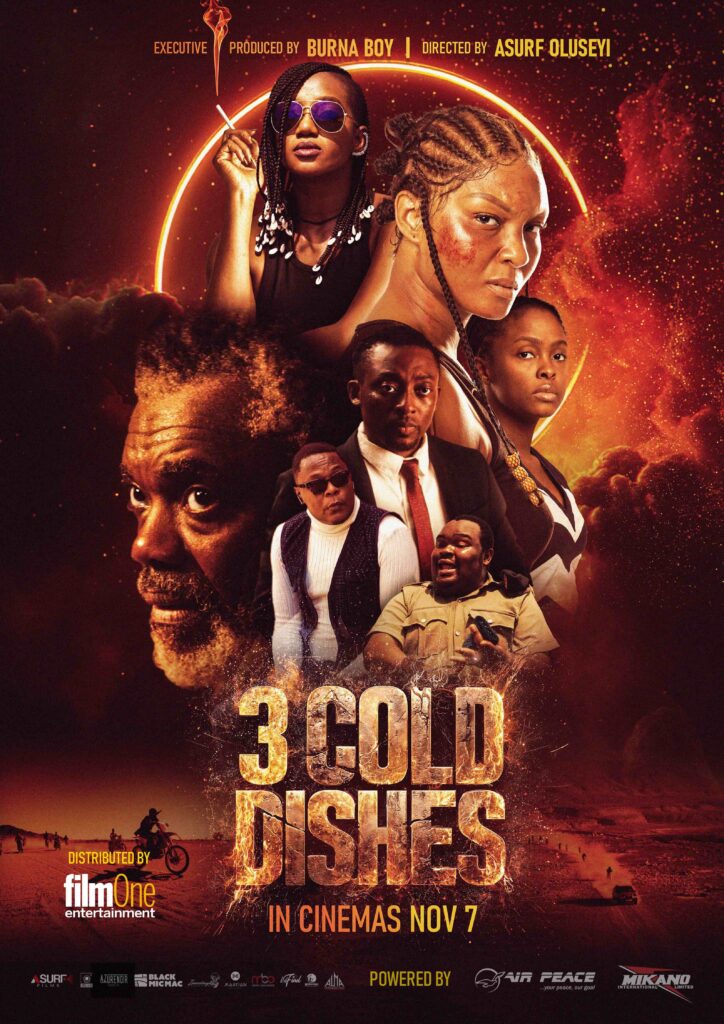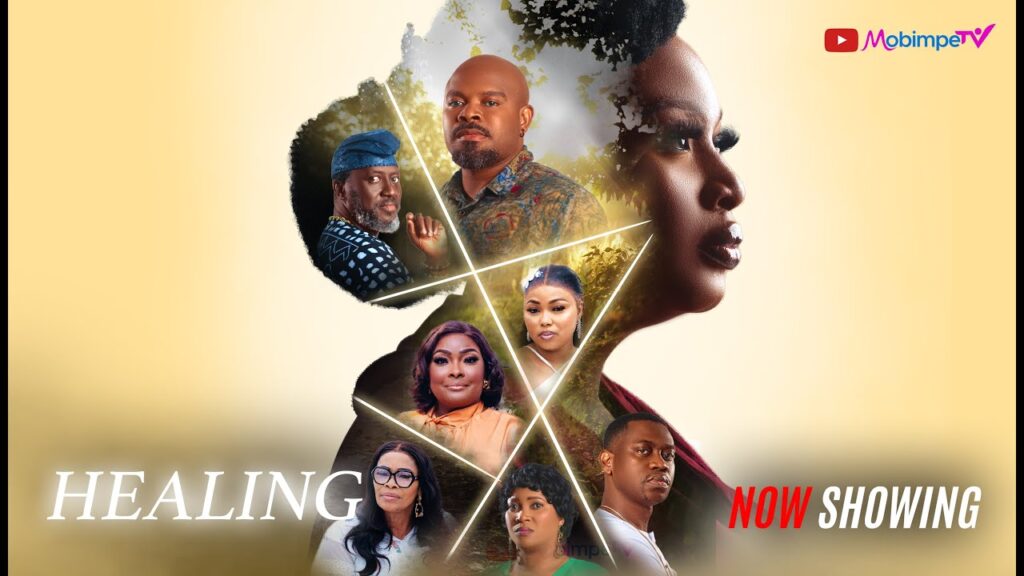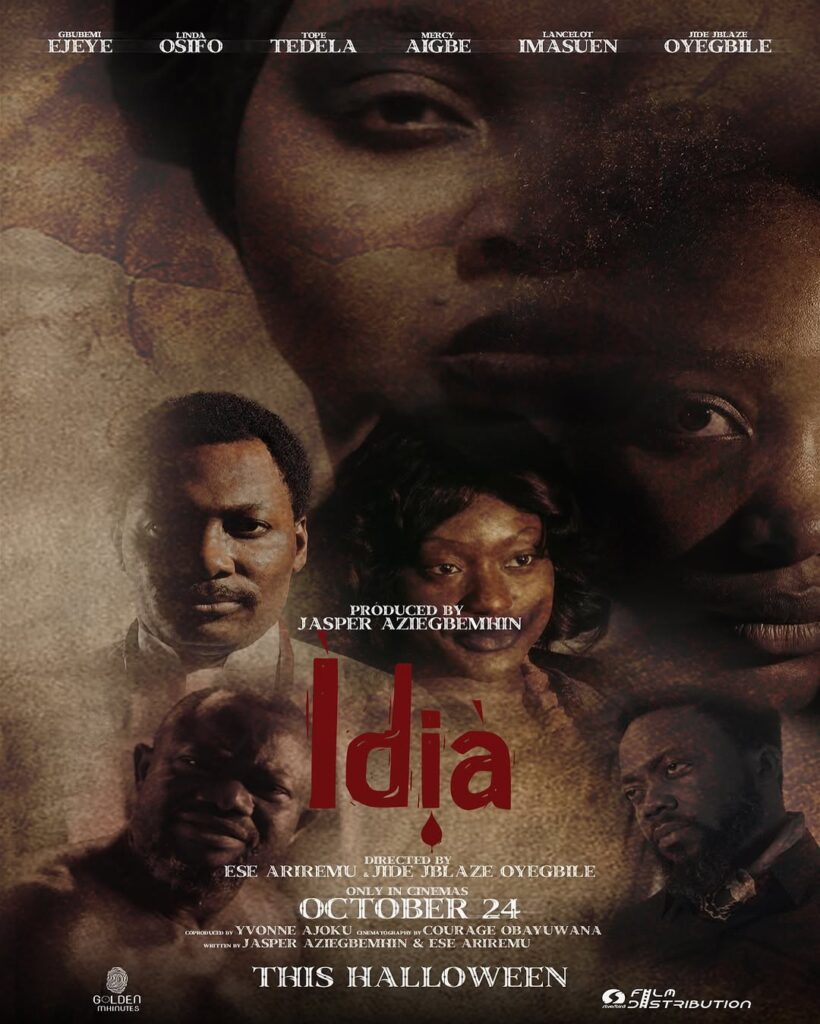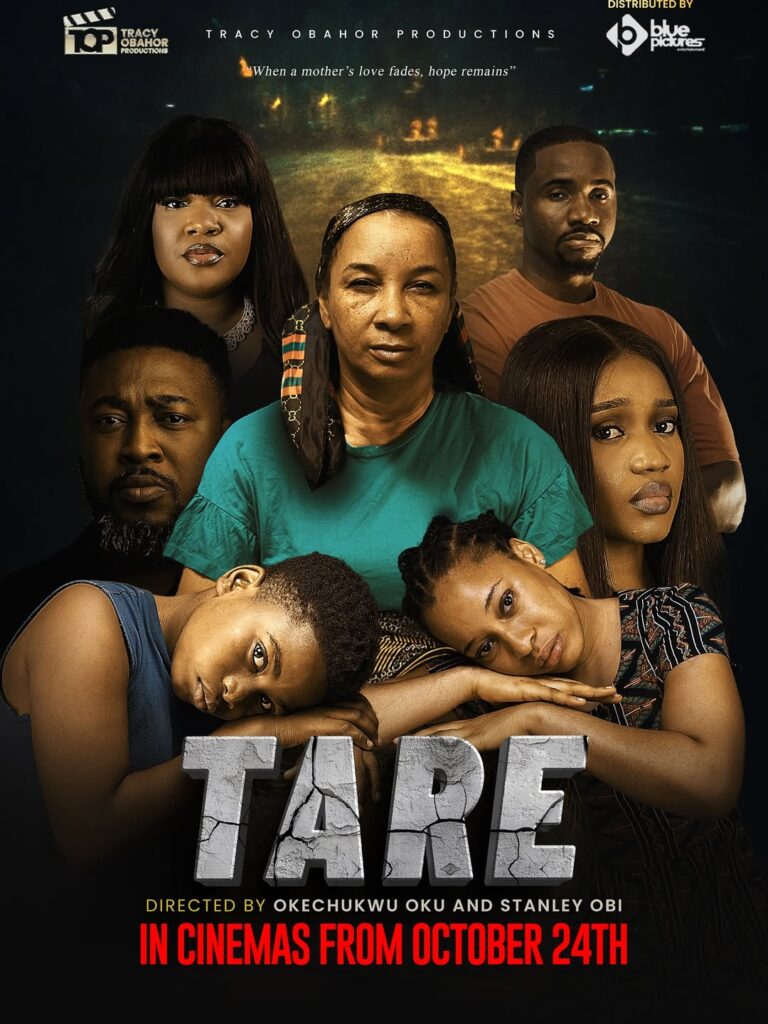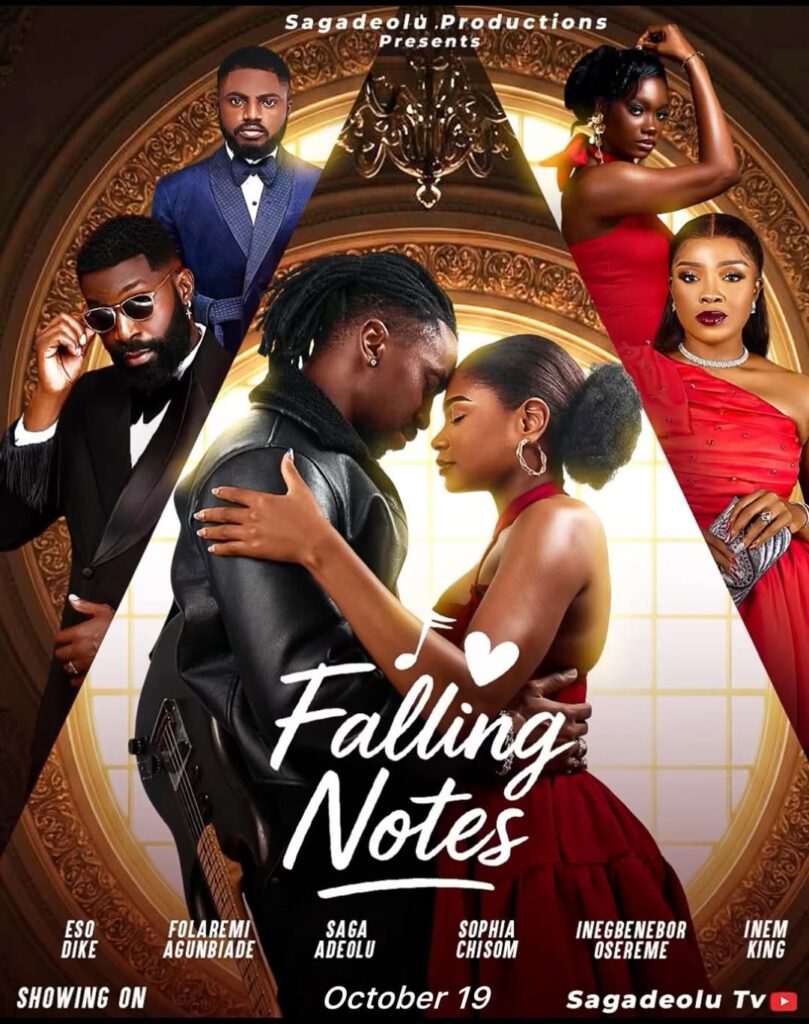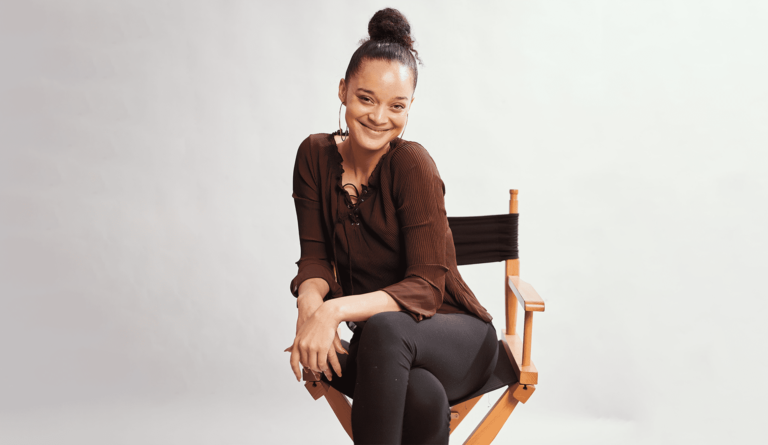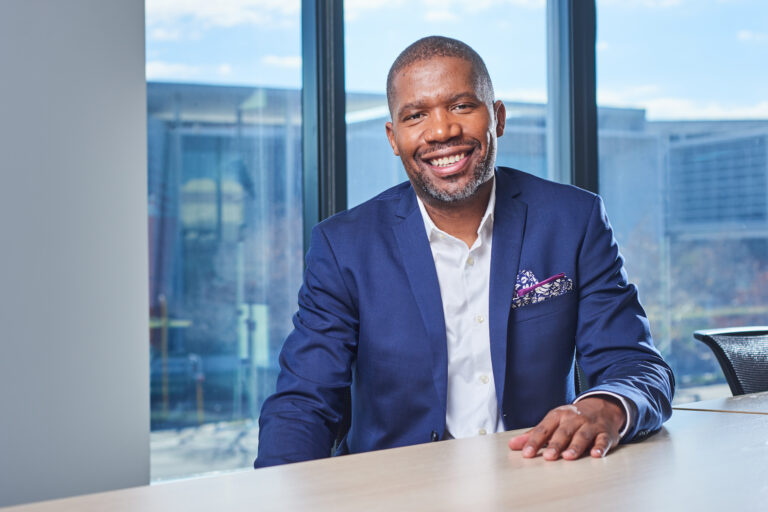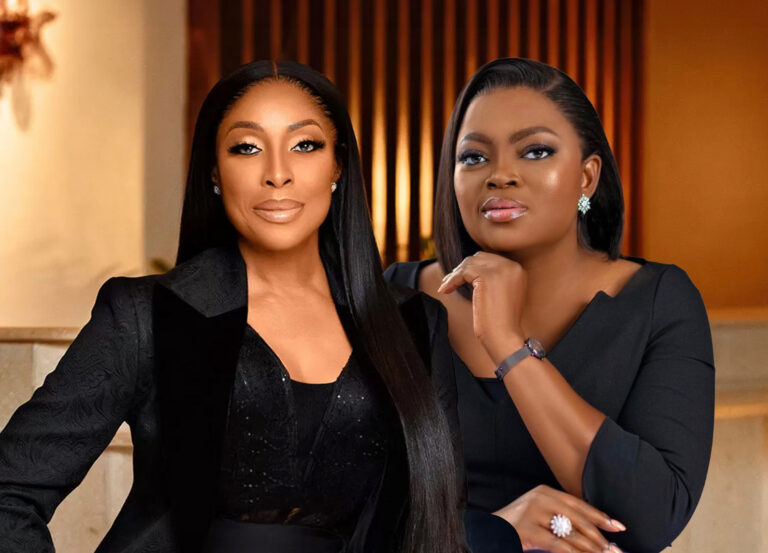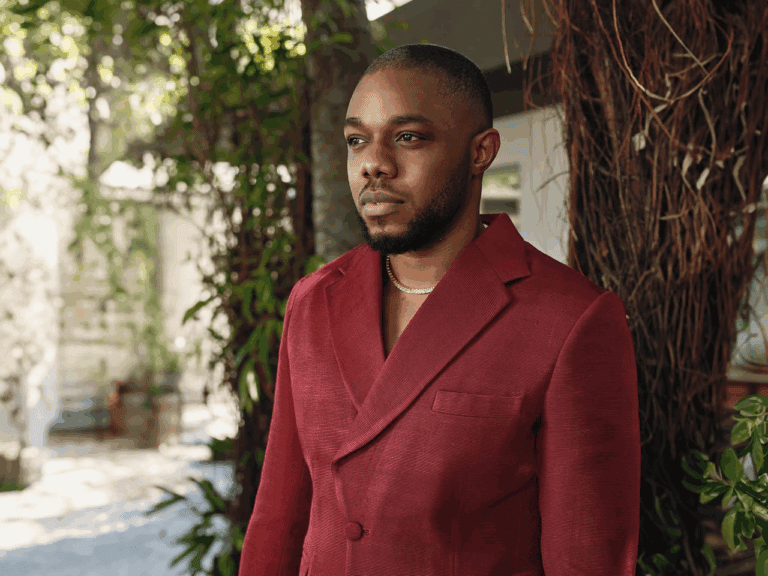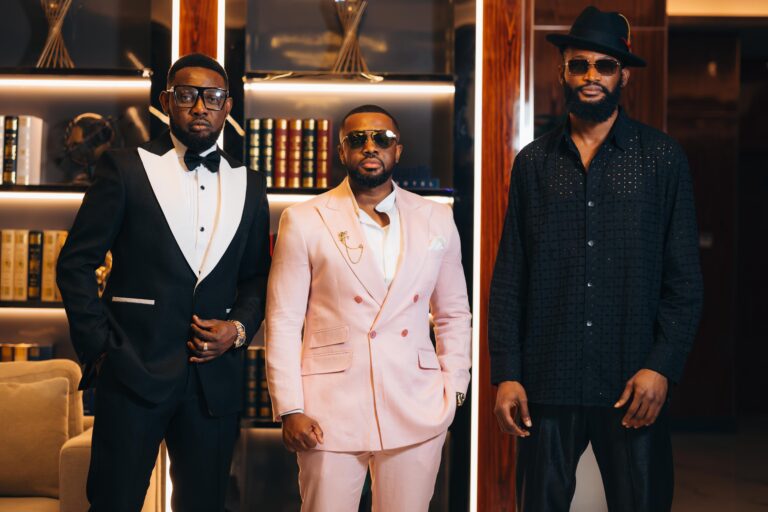There’s a certain clarity that comes with experience—and with Judith Audu, it shows. She speaks about producing with the precision of someone who has mastered the craft and the warmth of someone still in love with it. Her approach is both technical and intuitive, grounded in logistics but led by heart. For her, producing is as much about building stories as it is about building people.
She officially stepped into producing in 2014 with ‘Not Right’, a short film she wrote that tackled the subject of domestic violence. Featuring Omowunmi Dada, Ani Iyoho, and herself, and directed by Uduak Obong Patrick, it marked her first foray into shaping stories from behind the scenes. “I wanted to do more,” she says and that desire to lead and create meaningfully has shaped her path ever since.
From the beginning, she has been driven by a vision of professionalism and purpose: one where stories are powerful and the people behind them are protected. That mindset guided her through her first feature, ‘Just Not Married’, which went on to screen at the Toronto International Film Festival in 2016 and cemented her place in Nollywood’s producing ranks. Audu has gone on to produce noteworthy projects including ‘Blood Sisters’, ‘Shanty Town’, ‘Elesin Oba’ and many more.
In this edition of Off Camera, Judith Audu offers a rare look into what producing truly entails; the hidden layers, the daily decisions, and the passion that keeps her in the game. It is a thoughtful, candid masterclass in what it takes to bring stories to life.
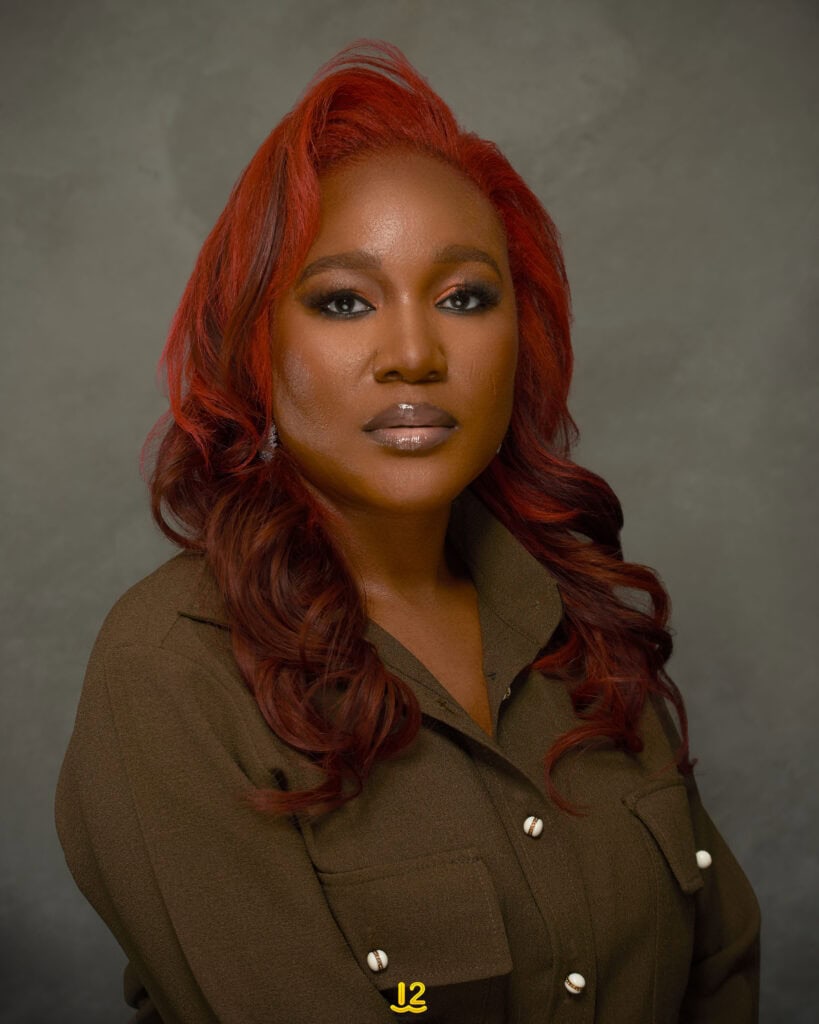
Shanty Town was a massive hit with audiences but also sparked conversation around its gritty themes and bold scenes. As a producer, how do you draw the line between commercial appeal and artistic responsibility?
Shanty Town’s success wasn’t accidental; it was the result of deep intention, creative conviction, and a team that believed in telling a raw, unflinching story. As a producer, I’m always navigating the fine line between artistic responsibility and commercial viability. For me, It is not about compromise; It is about conviction and execution. The script by Xavier Ighorodje was already a masterpiece on paper, gritty, layered, and emotionally charged. It demanded to be brought to life in the most honest and powerful way possible. Anything less would’ve dulled its impact.
Executive Producers Chichi Nworah and Ini Edo brought in director Dimeji Ajibola (God rest his soul), whose vision and courage brought the world to life. I was also brought on board, and together with Taiwo Adebayo, we formed a strong creative team. From there, it was about assembling a solid crew—one driven by precision, passion, and deep respect for the story.
Some key question I ask to understand story direction and importance are: What are we saying with this? Who are we speaking to? And does it move the conversation forward or just add noise? With ‘Shanty Town’, the world that was created was gritty and intense because the realities it portrayed are just as raw. But it also had a heart, humanity, and purpose in every scene. And yes, the subject matter was heavy, and yes, the artistry was intense but we believed that if we got the craft right, the balance would follow. And I believe we achieved that.
We want people to watch and enjoy the work but also to feel something, reflect, and maybe even challenge their assumptions, so you can say Shanty Town was a world that was both hard to look at and impossible to ignore and that’s exactly where the power lies.
You have worked on both high-budget projects like ‘Blood Sisters’ and more intimate films like ‘Special Friends’. What changes the most for you as a producer when the budget shifts?
The size of the budget may change, but the responsibility stays the same. Whether I’m working on a large-scale production like ‘Blood Sisters’ or something more intimate like ‘Special Friends’, my job as a producer is to protect the vision and make sure every naira is working toward that goal. With a big-budget project, you have more room to dream; you can push boundaries with schedule, locations, set designs, equipment, bigger crews, etc. But it also comes with more pressure, more eyes, and more moving parts. you are managing large teams, executive producers’ expectations, investors’ expectations, tight schedules, and sometimes navigating studio politics. It is a massive operation and you have to be both a creative leader and a logistical master.
On smaller projects, the challenge is different. you are stretching every resource, sometimes wearing multiple hats and constantly problem-solving. But there’s a beautiful intimacy in that. It forces creativity in the purest sense. you are working closely with your team, building deep trust, and often capturing magic in the most unexpected ways. What changes most for me is the scale of logistics, not the intention. Regardless of the budget, the heart of producing is the same: telling a story with integrity, building a team that believes in it, and making the audience feel something real.
‘Elesin Oba’ was a major adaptation of Soyinka’s work—what are the unique challenges of producing something with deep cultural or historical roots?
Producing ‘Elesin Oba’ was both an honour and a huge responsibility. When you are adapting something as iconic as Wole Soyinka’s Death and the King’s Horseman, you are not just making a film, you are handling legacy, culture, history, and emotion all at once. You have to treat the work with reverence but also with the confidence to bring it to a new generation and a wider audience. One of the biggest challenges was finding the balance between authenticity and accessibility. We had to stay true to the Yoruba culture, language, traditions, and spiritual layers of the original play, while also making it resonate with people who may not know anything about that world. Every costume, every chant, every set detail had to be deeply researched and respectfully portrayed.
There’s also the emotional weight when you are representing a people’s story, especially one rooted in colonial trauma, you don’t want to get it wrong. So, we worked with historians. language consultants, cultural custodians making sure we weren’t just creating cinema, but preserving memory. And then, of course, the cinematic challenge: How do you turn a play with such rich language and symbolism into a visual experience that moves people? That is where a strong director like the legendary Biyi Bandele (may his soul rest in peace) comes in; his vision helped ground everything. I was proud to be a part of a team that treated the material not just as a script but as sacred .
I must add that working with a visionary like THE MO Abudu, attention was paid to every little details and she made sure we didn’t compromise on making sure the work got all it needed, I was also blessed with the best team of producers for the job, James Amuta, Adeola Osukojo and our creative producer Heidi Uys.
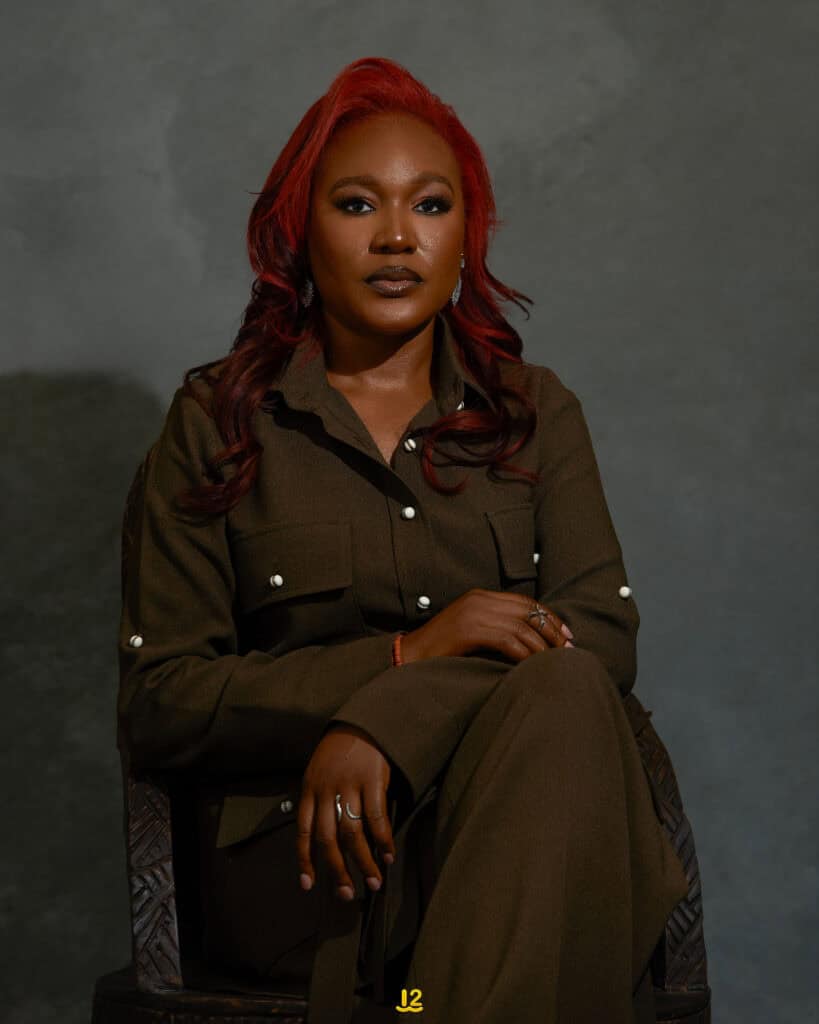
People often think producers just ‘find money’—but your work touches every part of a film. What’s one behind-the-scenes story that really shows what a producer actually does? And how much power does a producer have over a production? Does his or her say override the director’s?
Ah, the good ol’ “producers just find money” myth, I hear it all the time and it always makes me laugh. Yes, raising money is part of it, but that’s honestly just the beginning. Producing touches everything. From assembling the right team, setting the tone for the work environment, managing budgets and timelines, solving last minute crises, making sure every creative choice aligns with the vision, we are in the trenches from start to finish. And when things go wrong (and they always do), the producer is the one expected to fix it, quietly and efficiently.
I have several behind-the-scenes stories to tell for days! But a more recent one was during the shoot of a particularly complex night scene with a massive setup and a lot of background actors. Weather shifted, and it rained heavily for hours, it was obvious we were going to lose night whenever the rain stops, just one of the regular classic chaos. had to quickly rework the schedule on the spot with the assistant director, reallocating resources and calming nerves.
I spoke with the director, checked actors’ availability in real time, and ensured the team stayed motivated—all while making sure the story didn’t suffer from the changes. The shift had budget implications, as the entire setup would need to be repeated and all background actors recalled for another day. It wasn’t glamorous but it was the kind of moment that reminds you just how much producing is about leadership, instinct, stamina, remaining focused and calm no matter the storm.
Now, about “power” a good producer doesn’t override the director. We collaborate. The best outcomes happen when there’s mutual respect. I always say: the director is the captainof the ship, but the producer is the one who built the ship, stocked it, hired the crew, and is making sure it doesn’t sink. The producer creates the space for the director’s vision to thrive but also protects the project as a whole. So yes, we hold power but It is not about ego, It is about responsibility.
You have worked with first-time directors and seasoned veterans. As a producer, how do you know when to step in and when to step back?
One of the biggest lessons I have learned as a producer is knowing when to step in and when to step back, it is an art. With first-time directors, you often play a more hands on role: guiding the process, anticipating blind spots, offering structure without stifling their vision. It is about creating a safe space where they feel supported enough to take risks.
My very first feature film was with a first time feature film director at the time, Uduak Obong Patrick and I was also a first time feature film producer. But if you had shown up on our set, you would never have guessed it. We were so passionate, so ready, and so respectful of each other’s roles. Everyone wore their cap proudly and professionally. I made sure the environment was enabling enough for creativity to thrive without fear. We were all prepared to go the extra mile.
On the flip side, I have worked with some supposedly “experienced” directors who showed up clueless. So, for me, It is not about how long you have been doing it, but how committed and present you are. As a producer, I will always make sure we don’t fail. I will find creative ways to make things work, but never at the cost of making a director feel small. The goal is always to protect the vision and the team behind it.
The director may be the captain of the ship, but the producer is the ocean calm when needed, roaring when necessary, always focused on moving the story forward.
Producers are often accused of cutting corners, whether It is in crew pay, script quality, or post-production. Have you ever been in a situation where you had to choose between doing it ‘right’ and doing it ‘cheap’?
Absolutely and anyone who has ever produced anything real will tell you: that moment always comes. Budgets are never enough, timelines are always tight, and the pressure to deliver is sky high. But here is my rule: I don’t cut corners. I cut clutter, I don’t sacrifice quality or take shortcuts in the wrong places (cutting corners), but I do eliminate what’s unnecessary (cutting clutter) to keep the production focused, efficient, and sharp, so the integrity of the work is not compromised. There is a huge difference between being resourceful and being reckless. I have been on projects where we had to make very tough calls, maybe it meant pushing a shoot date to get the right location or reworking a scene to make sure crew safety wasn’t compromised.
I would rather do less and do it excellently than do more and leave people burned out, underpaid, or ashamed of the final product. I have seen firsthand how cutting corners can ruin the energy on set. It kills morale, creates bitterness, and eventually shows up on screen. But when you respect your crew, value your story, and lead with integrity, everyone brings their best. And that’s how magic happens even on a modest budget. So no, I don’t believe in doing it cheap. I believe in doing it smart. And doing it right.
There’s this ongoing debate in Nollywood about whether producers are more focused on star power than strong stories. What’s your take? Can a film succeed without big names if the story’s good?
This is such a real and necessary conversation, especially in our industry right now. The truth is yes, strong stories matter a lot. A great script with powerful performances can absolutely carry a project. But as a producer, I also have to wear my business hat, and that means being realistic about the market. Star power does have its place. It can give your project visibility, attract distributors, and bring in the first wave of eyeballs. But if the story isn’t solid, those same stars won’t save your film. In fact, audiences are quick to call out poor storytelling no matter who’s acting.
For me, It is about balance I have worked with big stars but I have also championed unknown talents who blew everyone away because they fit the role and brought the story to life in an unforgettable way. And that’s the sweet spot: when the casting serves the story and the market. At the end of the day, your casting strategy should align with the goal of the project.
If It is a theatrical release, you do need a strong commercial balance, something that helps you sell tickets, secure distribution, and position the film for maximum reach. We see this in Hollywood too. But if you are making something for TV, streaming, or the festival circuit, you may have more flexibility to prioritize pure acting chops over name recognition. Filmmaking is art but it is also business. And a good producer knows how to walk that line with clarity and intention. Study your market, know your audience, know the business and find what works for you.
What’s one film—Nollywood or even international—that you wish you produced, and why?
That is a tough one because I have seen so many films I admire deeply, but if I had to choose, internationally, I would say ‘Game of Thrones’. I know It is a series, but the sheer ambition of the world-building, the politics, the scale, the character arcs, It is everything I love about storytelling turned up to a hundred. Producing something of that scale, with that cultural impact, would be a dream.
In Nollywood, I am torn between ‘Òlòtūré’ and ‘Funmilayo Ransome-Kuti’. ‘Òlòtūré’ was fearless raw, socially charged, and cinematically rich. It took real risks and told a story that needed to be heard, it felt close to home for me as I am a HPS (Humanitarian Programme Specialist) for the UNHCR (United Nations High Commissioner for Refugees) and at the time we were working on discouraging illegal route to migration, I got to meet a lot of returnees so it felt real when I watched it. Funmilayo Ransome-Kuti, on the other hand, is a legacy film; bold, feminist, revolutionary, and historically important. That kind of work doesn’t just entertain, it educates and preserves memory.
So yeah give me the epic madness of ‘Game of Thrones’ with the guts of ‘Òlòtūré’ and the soul of ‘Funmilayo Ransome Kuti’. That is the kind of producer I want to be.

